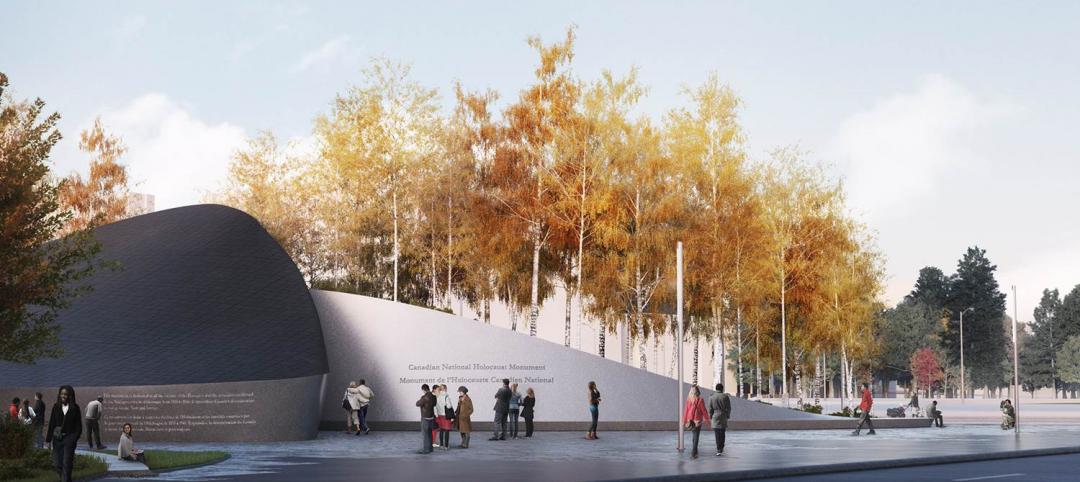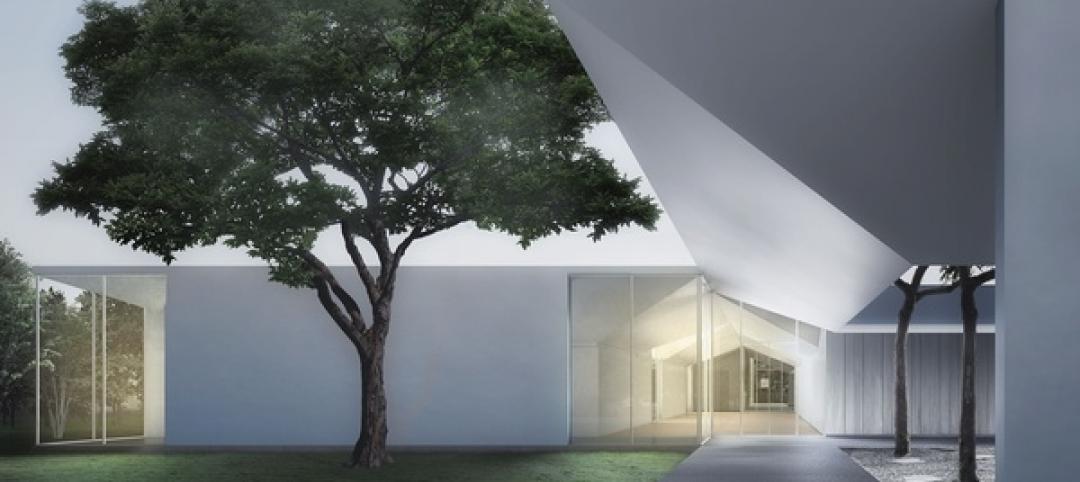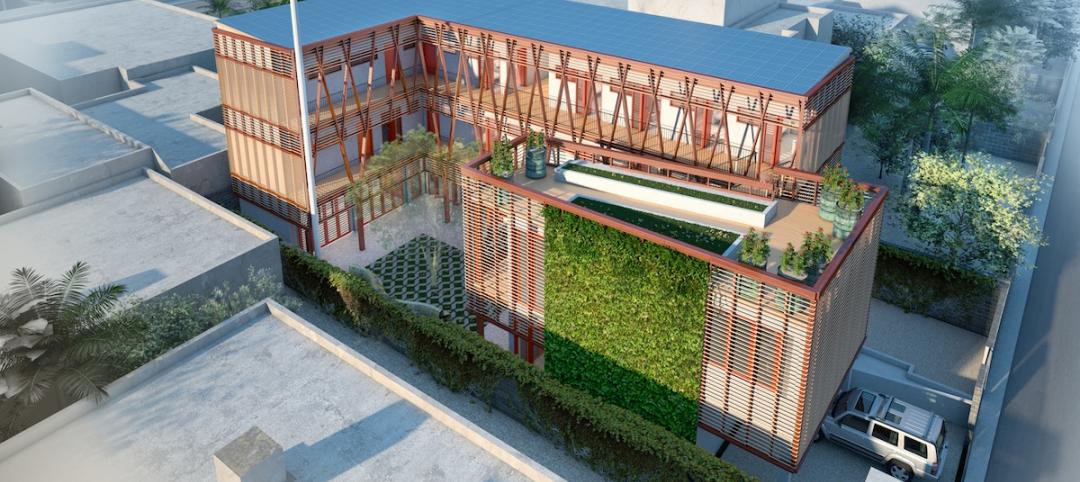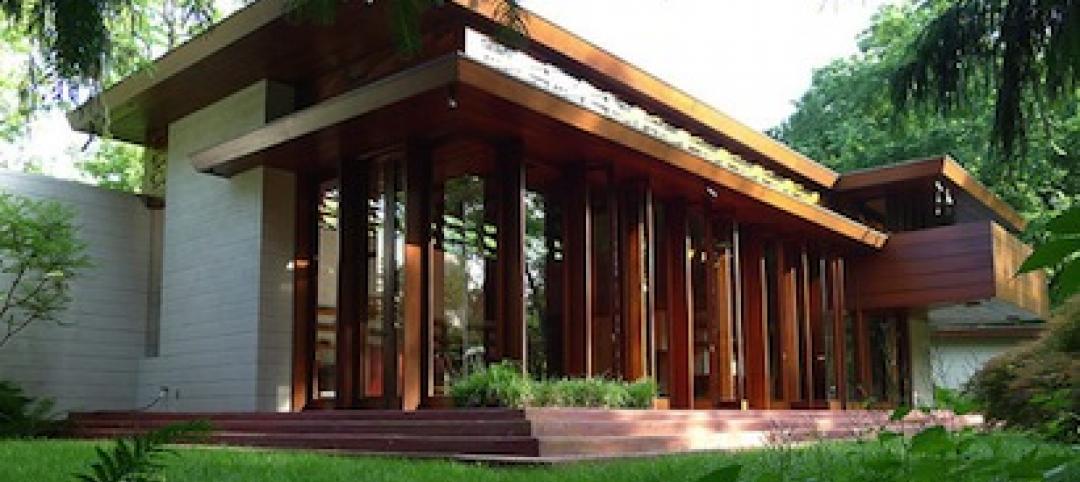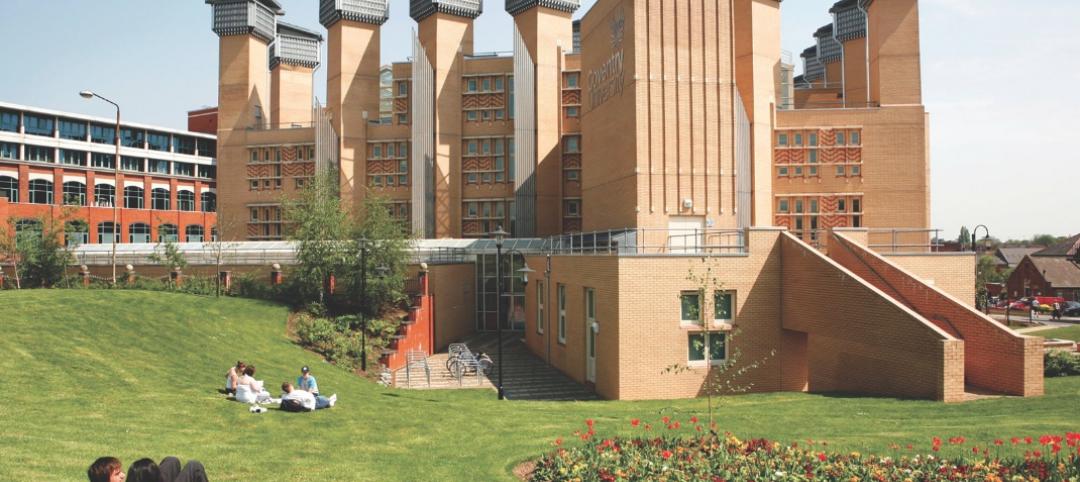Construction spending for education expanded modestly but steadily through March, while at the same time growth for other institutional construction had stalled earlier in 2009.
Education spending is now at or near the peak for this building cycle. The value of education starts is off 9% year-to-date compared to 2008. April starts fell 14% to the lowest total in more than three years. BD+C projects a 3–4% dip in education construction spending into early 2010, and then a recovery by the end of next year, which will bring spending up to early 2009 peak levels. Public education spending is up 6.4% in the past year but spending in the smaller, private sector dropped 0.4%. Funding for private education projects is very sensitive to current economic conditions, specifically tuition payments from current income and investment earnings.
College construction spending is up 12.2% from a year ago, but K-12 spending is up only 3%. Colleges boosted spending for instructional space 20.6% over the past year. Dormitory spending was up only 5%. These increases are the result of the relatively rapid expansion of community colleges and part-time programs for working adults. The small expansion of K-12 construction spending was entirely for high schools, which is up 7.9% over the last year. Middle school construction spending was steady, while elementary spending fell about 3%. These differences mirror enrollment changes. The peak enrollment is now in the 10th grade, which puts more pressure on high schools.
The reason the education construction recession is relatively modest is largely due to nearly $200 billion in state and local government aid included in the stimulus plan. This money is being paid out quickly because it's not linked to specific projects. These new funds offset the huge negative impact of reduced tax receipts in FY 09–10. Without the stimulus funds, a deep recession in public education construction would occur in 2009–10. Instead, most of the recession will be offset, with the balance deferred to 2011–12.
Related Stories
| Feb 28, 2014
Six finalists selected in design competition for Canadian Holocaust monument
David Adjaye and Daniel Libeskind are among the finalists for the National Holocaust Monument, planned near the Canadian War Museum in Ottawa.
| Feb 24, 2014
New Menil Drawing Institute will fit in with leafy surroundings
In Houston, plans are being finalized for the first freestanding American building built to house and conserve modern and contemporary drawings.
| Jan 30, 2014
How reverse engineering nature can spur design innovation
It’s not enough to copy nature. Today’s designers need a deeper understanding of environmental nuance, from the biome in.
| Jan 28, 2014
16 awe-inspiring interior designs from around the world [slideshow]
The International Interior Design Association released the winners of its 4th Annual Global Excellence Awards. Here's a recap of the winning projects.
| Jan 27, 2014
A climber's dream: Rock climbing hall planned near Iran's highest peak
Forget the rock climbing wall. A developer in Iran is building a rock climbing hall. That's right, an entire building dedicated to the sport, with more than 48,000 sf of program space.
| Jan 17, 2014
Crystal Bridges Museum will move Frank Lloyd Wright house from New Jersey to Arkansas
Numerous architectural experts have concluded that moving the Bachman Wilson House offers its best hope for long-term survival.
| Jan 13, 2014
Custom exterior fabricator A. Zahner unveils free façade design software for architects
The web-based tool uses the company's factory floor like "a massive rapid prototype machine,” allowing designers to manipulate designs on the fly based on cost and other factors, according to CEO/President Bill Zahner.
| Jan 11, 2014
Getting to net-zero energy with brick masonry construction [AIA course]
When targeting net-zero energy performance, AEC professionals are advised to tackle energy demand first. This AIA course covers brick masonry's role in reducing energy consumption in buildings.
| Dec 30, 2013
Calatrava facing legal action from his home town over crumbling cultural complex
Officials with the city of Valencia, Spain, are blaming Santiago Calatrava for the rapid deterioration of buildings within its City of Arts and Sciences complex.
| Dec 19, 2013
Mastering the art of crowd control and visitor flow in interpretive facilities
To say that visitor facility planning and design is challenging is an understatement. There are many factors that determine the success of a facility. Unfortunately, visitor flow, the way people move and how the facility accommodates those movements, isn’t always specifically considered.


